Honduras: ‘It’s more than putting food on the table for LGBT+ people — it’s inclusion’
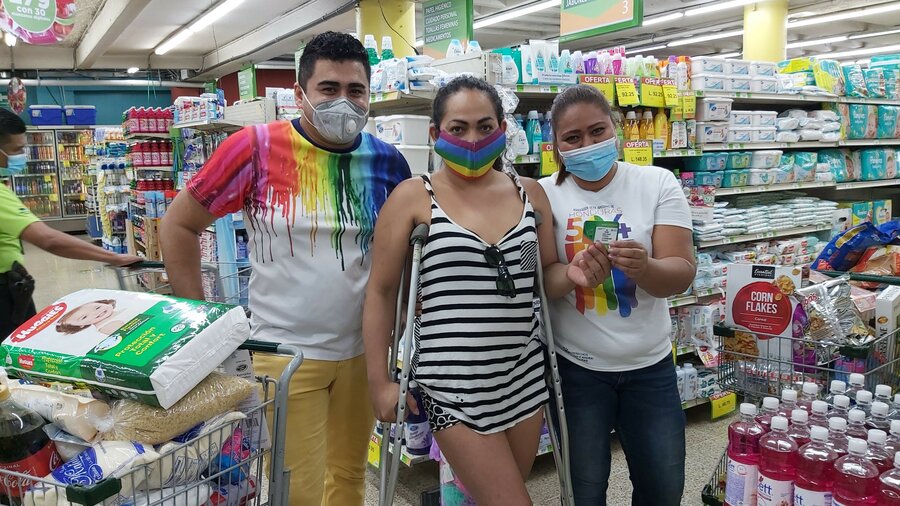
Story by Hetze Tosta
The LGTB+ community in Honduras has been hit hard by the coronavirus pandemic. For many gay, lesbian, bisexual, transgender and intersex people, restrictions imposed to curb the spread of the virus have meant the loss of jobs and income.
"I have been out of work for six months," says Britthany Pamela, a sex-worker. Britthany is lucky to be living with her sister — because with no money coming in, many members of the LGBT+ community have lost their homes.
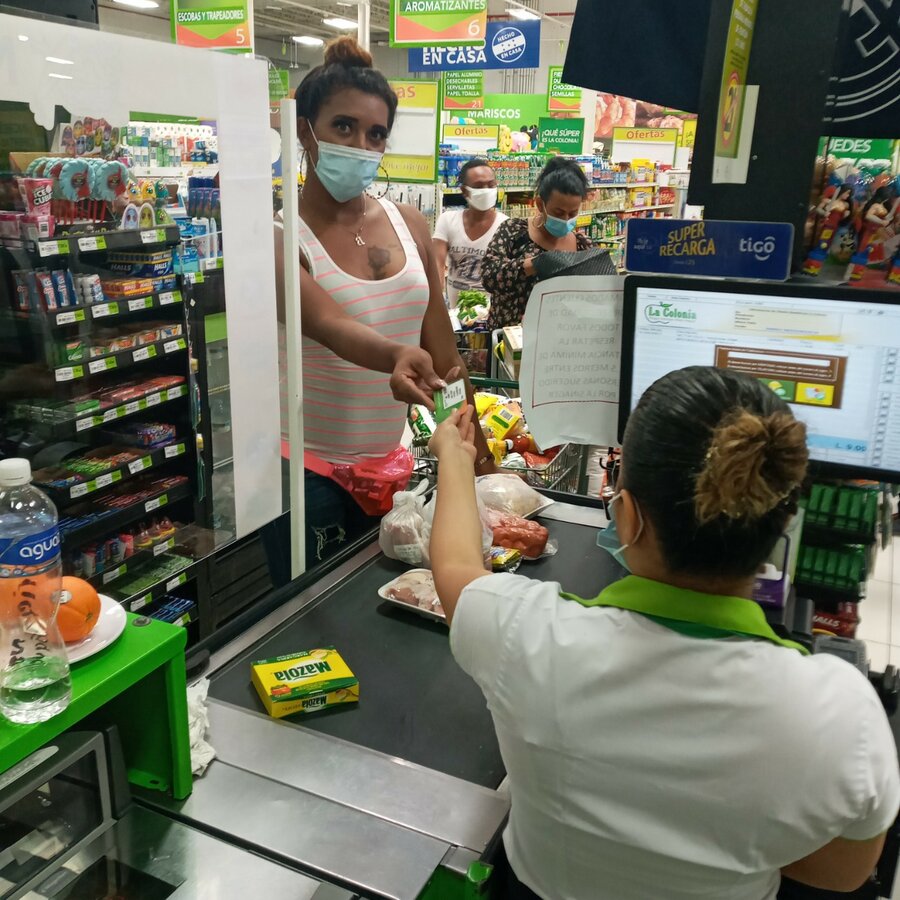
Millions of Hondurans are in a similar position. For members of the LGBT+ community, however, things are harder: when they fall, there is no safety net to catch them.
"Historically, we have been discriminated against and excluded from any welfare programme," says Reyes, one of the leaders of the LGBT+ community in Honduras and coordinator of Asociación LGTB Arcoiris de Honduras.
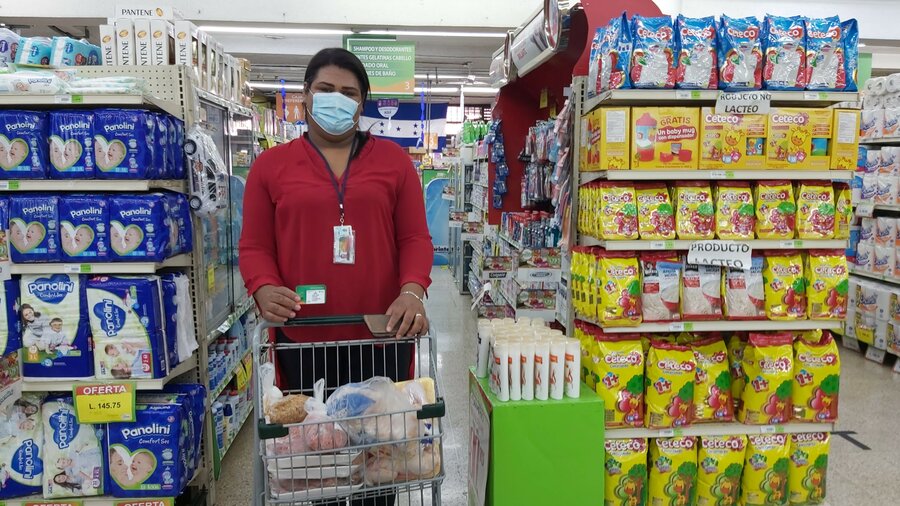
Reyes highlights the plight of those living with chronic conditions including HIV and Aids who are being pushed into poverty, unable to afford nutritious food. "If they don't eat well, the drugs won't work," he says.
For transgender people, the absence laws empowering them to self-identify adds a further layer of complication.
Over the past six months, showing ID has become a precondition to entering a supermarket, pharmacy or bank, and even to walk the streets — people are allowed out on alternate days based on the last digits on their identity card.
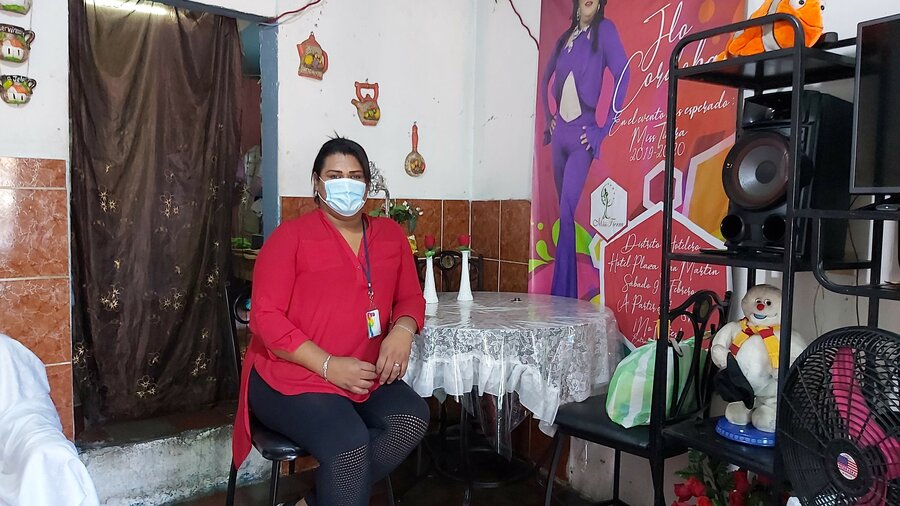
"As transgender women, we often face discrimination at the hands of security personnel in shops and even of the authorities, because we look different from the photo on our identity papers," says JLo Córdoba, who coordinates the Muñecas de Arcoiris collective, which campaigns for the rights of transgender women.
"Security guards often make fun of us and refuse to let us into shops," she says. "This affects our self-esteem, so we prefer not to go into the shops and end up being unable to buy what we need."
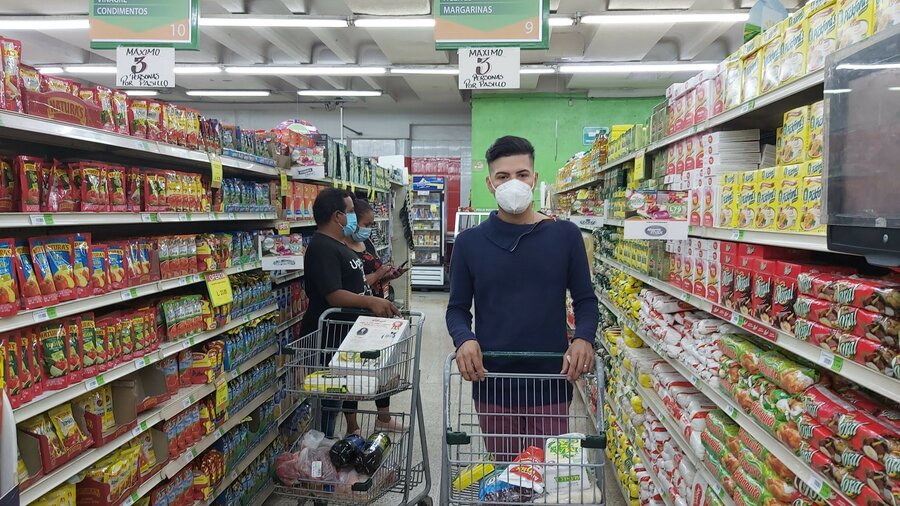
JLo adds: "Many transgender women can no longer generate income and have nothing to eat, nowhere to stay." For this reason, the collective facilitates hostel accommodation for people unable to pay rent.
JLo herself has seen her diet, and that of her family, deteriorate: before the coronavirus pandemic they could choose to eat beans once a day, in the evening. "Now this is all we have, breakfast, lunch and dinner."
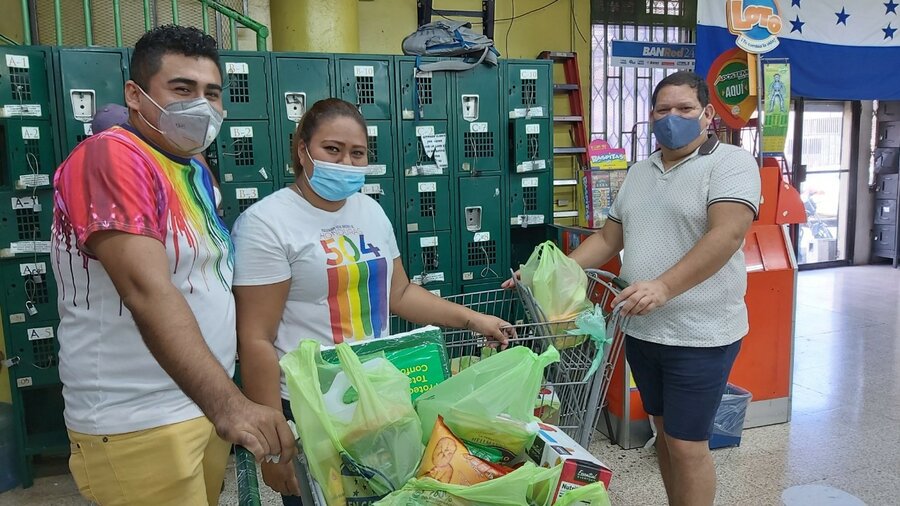
Rubi Ferrira, another leading member of Muñecas Arcoíris, used to work with her mother at the local market, but COVID-19 wiped out their business. "Because of the pandemic, I had to drop out of college as I could no longer afford it," she says.
Now Rubi is walking down a supermarket aisle with her mother. They are one of 800 LGBT+ households from across the country who have been given a World Food Programme pre-paid e-card to buy food.
"This card means a lot more than being able to put food on the table — it means inclusion," says Carlos Roberto Martínez, a lab technician who lost his job.
Donny Reyes echoes his words. "For a group that has traditionally been neglected and stigmatized, being included among the recipients of this assistance has historic significance," he says.


